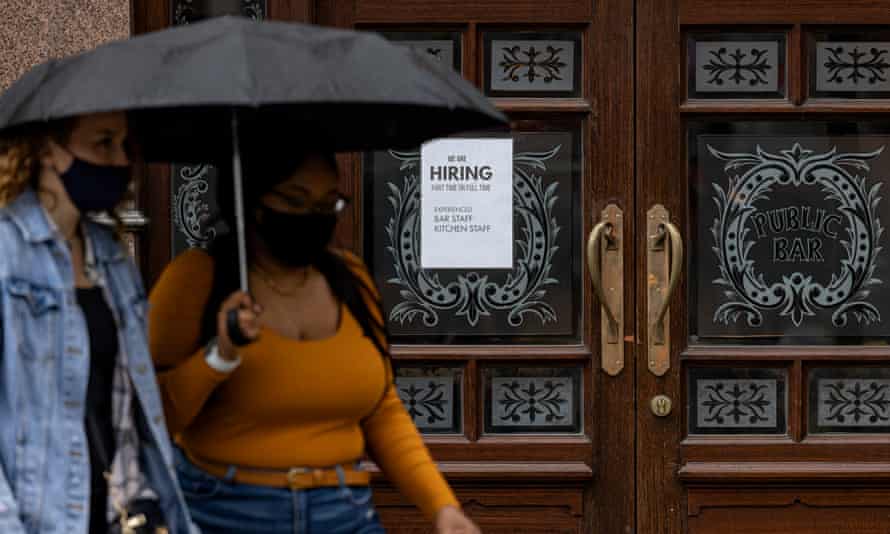The number of job vacancies in the United Kingdom has reached a 20-year high

Image credit: The Guardian
According to the most recent government numbers, the number of job vacancies in the UK has reached an all-time high.
Vacancies hit 1.1 million between July and September, the highest level since records began in 2001, according to the Office for National Statistics.
The retail and auto repair industries saw the most job openings, according to the report.
The United Kingdom’s unemployment rate was predicted to be 4.5 percent, up from 4% prior to the pandemic. According to the ONS, the number of employees on payrolls increased by 207,000 in September, reaching a new high of 29.2 million.
Vacancies also hit a new one-month high of roughly 1.2 million in September, with our latest estimates indicating that all industries now have at least as many job openings as they did before the start of Covid-19.
The government’s jobs policy, according to Chancellor Rishi Sunak, is ‘encouraging’. “In September, the number of projected layoffs remained relatively low, there are more people on payrolls than ever before, and the unemployment rate fell for the eighth consecutive month.”
Labor shortages, according to Yael Selfin, chief economist at KPMG UK, “may hamper” the UK’s economic recovery from the pandemic.
Accommodation and food services, professional activities, and manufacturing all saw significant increases in vacancies. According to Paul Dales, chief UK economist at Capital Economics, the record number of job vacancies combined with a rise in wage growth in August “increases the chances of the Bank of England raising interest rates in the coming months, despite other evidence that the economic recovery is sputtering.”
“Crucially, evidence from other polls suggests that vacancies are high, partially as a result of companies’ increasing difficulty in hiring personnel,”he said.
As a result, there are no meaningful signals in this release that labour shortages are beginning to lessen. He went on to say that the conclusion of the furlough programme “would definitely assist,” but that “labour shortages will likely remain at least until the middle of next year.”
